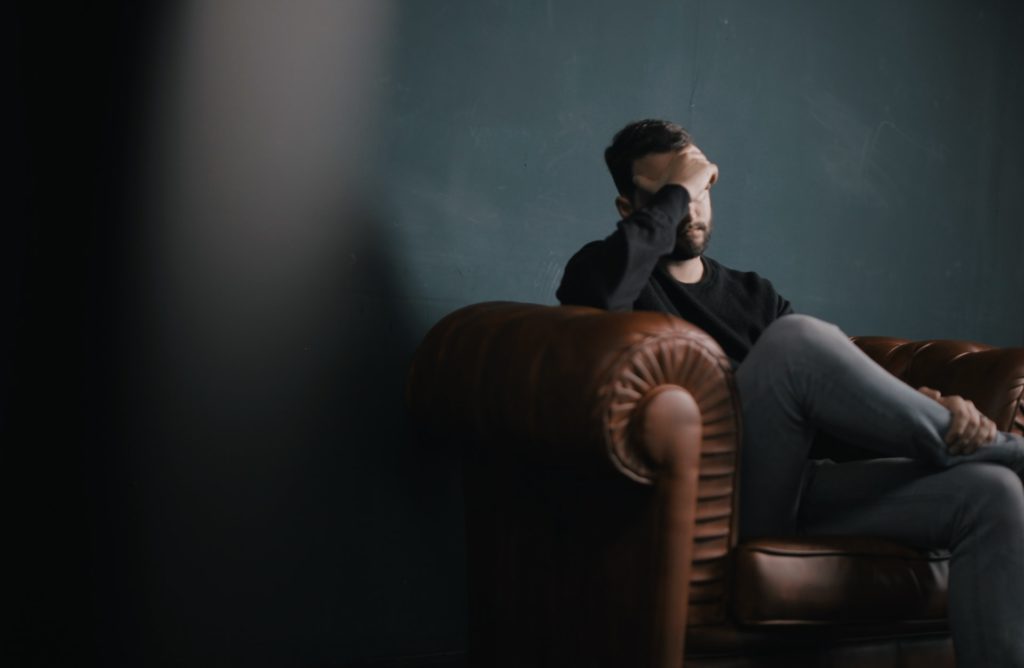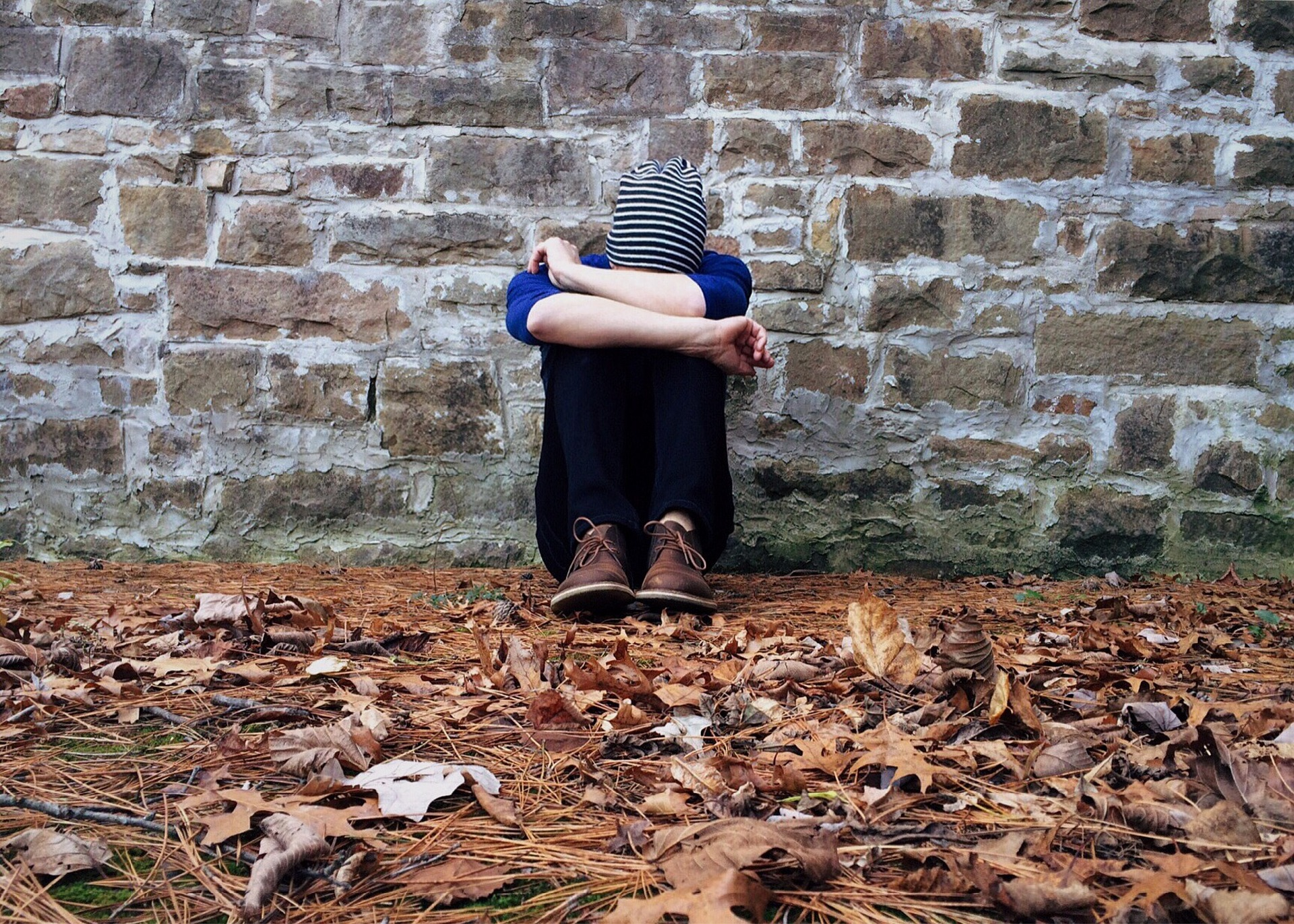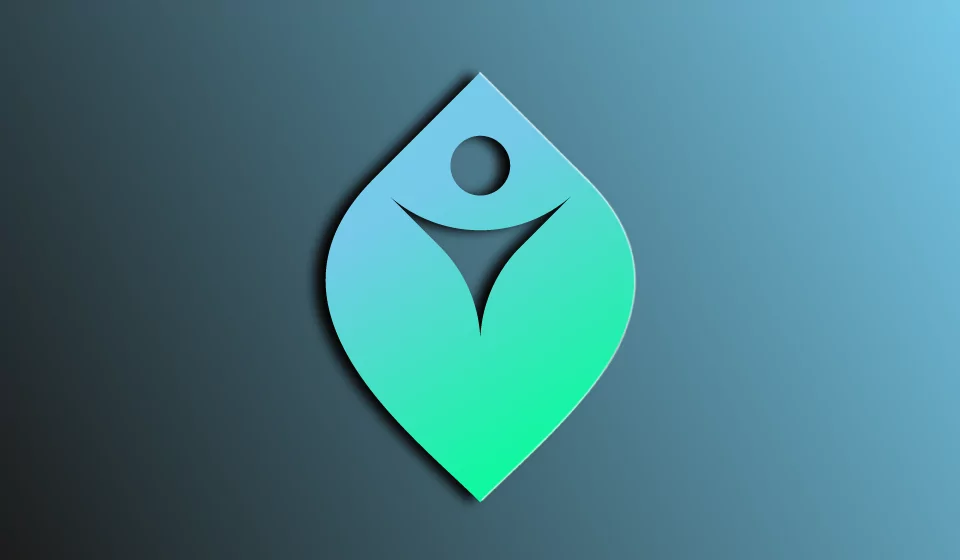Luxury Depression Treatment Center
Depression is a serious mental illness that affects millions of people.
It’s not just sadness or feeling down for a few days – it can last weeks, months, and even years. If you live with depression, you may feel tired, hopeless, and alone. Residential treatment for depression is available to help you get better. If you think you may be experiencing depression, we encourage you to take the first step toward recovery by speaking with one of our trained mental health professionals today.
You don’t need to feel alone or ashamed. The compassionate treatment team of therapists at our depression treatment center is here for you every step of the way as you work toward your goals.
Take the first step today and call Amend Treatment at (833) 912-6363 to learn more about depression treatment.
Overview
We all experience short periods of sadness now and then. Some common situations that can cause sadness include loss, failing to complete an important task and more. With depression, however, sadness can be more severe and last longer than normal, which makes it harder to overcome depression.
Depression is a mental health condition that affects how an individual feels, thinks, and behaves. A person with depression may experience negative feelings such as hopelessness throughout the day and these feelings can last for weeks, months, or even years.
Depression is not a short-term problem and depression symptoms can vary from person to person.
Symptoms
There are several common depression symptoms and identifying them will help to determine whether you’re experiencing normal feelings of sadness, or actual clinical depression.
Symptoms of depression may include:
- Persistent sad, anxious, or empty mood
- Loss of interest in previously enjoyed activities
- Feeling hopeless and/or pessimistic
- Difficulty sleeping or oversleeping
- Decreased energy or feelings of fatigue
- Changes in diet and/or weight
- Isolating from social activities with friends and family
- Aches or pains, headaches, cramps, or digestive problems
- Thoughts of death or suicide (National Suicide Prevention Lifeline 800-273-8255)
In many cases, people who experience depression may turn to substance abuse in an effort to numb uncomfortable feelings. This type of substance abuse is known as self-medication. Self-treatment for depression it can quickly lead to the development of a substance use disorder or abuse disorder.
Over time, the combination of depression and substance abuse disorders can result in what’s known as co-occurring disorders. Co-occurring disorders involve multiple mental health issues and require special residential treatment for co-occurring disorders to address multiple mental health concerns simultaneously.
Types of Depression
There are several types of depression, including major persistent depressive disorder, postpartum depression, manic depression, and more.
For this reason, it’s important to seek the help of a depression treatment center or mental health professional who can accurately identify the type of depression and recommend the most effective depression treatment plan.
Major Depressive Disorder (MDD)
When a person experiences one or more major depressive episodes, they may be diagnosed with major depressive disorder (MDD). A major depressive episode is defined as a period of at least two weeks where the depression symptoms are present most hours of the day and nearly every day. This means a person with MDD may have a depressed mood and other symptoms of depression at least two weeks out of the month, nearly every day.
While major depressive disorder is a form of clinical depression, not everyone experiences the same types or degrees of depression. Some may experience mild to moderate depression while others can experience severe depressive episodes that can last for months or even years.
Postpartum Depression (PPD)
Postpartum depression is common with women who recently gave birth, especially with first-time mothers. PPD may occur during pregnancy but it generally begins after giving birth and can last until the baby is at least six weeks old. After that time, the symptoms of PPD may fade on their own or they may require help from a mental health professional.
PPD causes feelings of overwhelming sadness, helplessness, and anxiety in new mothers. Postpartum depression symptoms can also lead to dramatic changes in the mother’s sleep schedule, appetite, concentration level, self-esteem, emotional and mental health conditions, and more.
Psychotic Depression
Psychotic depression is a specific type of major depressive disorder that involves hallucinations and delusions. Psychotic depression can be difficult to diagnose because the symptoms are similar to other mental health disorders, such as schizophrenia.
The primary symptom of psychotic depression is experiencing an extended period of severe depression along with seeing or hearing things that aren’t real. Psychotic depression symptoms usually include extreme negative feelings about oneself or one’s life situation, hallucinations that interfere with normal daily life, delusions that interfere with normal activities and relationships, and severe mood swings. Psychotic depression symptoms often lead to intense fear, paranoia, anxiety, suicidal thoughts or actions (National Suicide Prevention Lifeline 800-273-8255), and more.
When seeking help for major depressive disorder or other types of depression it’s important to seek the advice of a professional who can determine the best residential treatment plans and options based on an accurate diagnosis.
Seasonal Affective Disorder
Seasonal affective disorder is a type of depression that involves experiencing seasonal changes. Seasonal affective disorder usually begins in the fall or winter, when there are fewer hours of sunlight, and it dissipates during spring or summer when there are more hours of sunlight.
Seasonal affective disorder symptoms can include feelings of hopelessness, lack of interest in activities once enjoyed, increased sleep patterns, cravings for carbohydrates or sugar, weight gain, and more.
In addition, seasonal affective disorder symptoms can cause a person to experience problems with work, school, and relationships. Seasonal affective disorder can be difficult to diagnose because it shares many symptoms with other types of depression. However, if you only experience symptoms during the fall and winter months year after year, it may be a clear indication that you are experiencing seasonal affective disorder as opposed to other types of depression.
Manic Depression
Manic depression is associated with bipolar disorder. Bipolar disorder, or bipolar depression, is a mental illness characterized by periods of depressive symptoms and periods of elevated mood, known as mania.
Manic depression symptoms can include extreme changes in sleep patterns — sleeping for days at a time or being unable to sleep for days.
Mania can quickly become dangerous as a person becomes irritable and aggressive, has delusions of grandeur, and experiences reckless behavior. Manic depression requires proper treatment from a mental and behavioral health care professional to restore balance in the brain and reduce the severity of symptoms.
Causes
People experience depression for a variety of reasons. Depression can be caused by a chemical imbalance in the brain, a history of trauma or abuse, genetics, other mental health disorders, and more.
It’s important to remember that everyone experiences depression differently and what causes one person’s depression may not cause another’s. Some common causes of depression include:
-
Lack of sleep
-
Poor diet
-
Inactivity or lack of exercise
-
Recent life changes, such as marriage, divorce, moving, or losing a job
-
Death of a loved one
-
Chronic pain and illness
-
Drug and alcohol use
-
Genetics or a family history of depression
As with most types of mental health disorders, depression is multifaceted and what causes depression for one person may not cause it for another. It can occur as a result of numerous outside factors and even genetic components. However, what’s clear is that depression has many different possible root causes and what works to treat one type of depression may not work to cure all depression.
It’s important to seek professional help when you experience severe depression symptoms. A trained professional can determine what type of depression treatment programs and options are best for you based on your specific diagnosis.
If you’re interested in finding a residential treatment center or out more about what causes depression, contact Amend Treatment today.
Depression Treatment
There are many ways to treat depression.
Depression treatment can involve psychotherapy, medications, or a combination of both. Depression treatment is tailored to the individual based on their diagnosis and personal preferences.
This is why it’s important to schedule an appointment with a depression treatment provider, evaluate your unique situation, and explore residential treatment possibilities.
Psychotherapy for Depression
Psychotherapy (talk therapy) is one type of treatment for depression. Psychotherapy is used to address the thoughts, feelings, and behaviors that may be causing or maintaining your depression symptoms.
Depending on your unique situation, psychotherapy can help you adjust to stressful changes, manage stress more effectively, establish healthy relationships with family members and friends, identify personal strengths and weaknesses, and more. Psychotherapy can also provide support during difficult times and teach you coping skills to better handle future depression symptoms.
Cognitive Therapy
This type of therapy is focused on identifying and changing negative thoughts.
Behavioral Therapy
This type of therapy will help you change your behaviors by encouraging you to take part in activities that are enjoyable, rewarding, or helpful for your treatment plan. These could include exercising regularly, eating a healthy diet, participating in life experiences that are fun and meaningful, and more.
Cognitive-Behavioral Therapy
This type of therapy is considered to be the most effective type of psychotherapy for depression. It combines cognitive therapy and behavioral therapies, so it helps change negative thinking patterns while also encouraging you to take part in activities that are rewarding or beneficial to your recovery.
Dialectical Behavior Therapy
This is a type of cognitive-behavioral therapy that helps you identify unhealthy behaviors and ways of coping, while also encouraging communication.
Psychodynamic Therapy
This type of therapy helps you explore your past experiences and relationships to better understand feelings that may be affecting your current moods.
Interpersonal Therapy
This type of psychodynamic therapy focuses on close relationships and specifically addresses how depression and interpersonal problems are related.
Psychotherapy for depression is a very effective treatment option for those struggling with depression. Psychotherapy can help you explore your emotions, thoughts, and behaviors to better understand the patterns that may be causing or exacerbating your symptoms.
Medication for Depression
Depression treatment is not limited to psychotherapy. Depending on your unique situation, depression treatment can also involve prescribed medications such as antidepressants.
Medication for depression works by adjusting the levels of chemicals in your brain that may be causing or triggering depressive symptoms. Medication can help provide relief from some of the more difficult depression symptoms, while therapy sessions can work to address the underlying issues that are contributing to your depression.
Medication for Depression includes SSRIs and SNRIs. The group of antidepressants most often prescribed today consists of drugs that regulate the chemical serotonin. Known as Selective Serotonin Reuptake Inhibitors (SSRIs), the group includes citalopram ( Celexa ), escitalopram ( Lexapro ), fluoxetine ( Prozac, Sarafem ), fluvoxamine ( Luvox ), paroxetine ( Paxil ), and sertraline ( Zoloft ). Serotonin norepinephrine reuptake inhibitors (SNRIs), including desvenlafaxine ( Khedezla ), and desvenlafaxine succinate.
There are several types of antidepressant medications used to treat depression, which is why it’s important to work closely with your mental health professional. In some cases, medication might not relieve depression symptoms. This is considered treatment-resistant depression and may require an alternative approach to depression treatment.
Choose Amend Treatment’s Luxury Depression Treatment Center Today
Luxury depression treatment centers provide an unparalleled level of care and comfort. By offering a serene environment, privacy, personalized care, and luxurious amenities, a luxury residential treatment center creates an atmosphere conducive to a healthy healing process. Whether you or a loved one are in need of a residential depression treatment center, consider the benefits of a luxury depression treatment center.
How Luxury Depression Treatment Centers Differ from Standard Facilities
Unlike standard residential treatment centers, luxury depression treatment centers offer a range of luxurious amenities that contribute to a more comfortable and relaxing environment. These may include spa services, private chefs, yoga and meditation classes, and more. These amenities, combined with a higher staff-to-patient ratio, make luxury treatment centers ensure that each patient receives individual attention and care.
Luxury Depression Treatment at Amend Treatment
If you’re struggling with depression symptoms, you’re not alone.
Depression is a serious mental health disorder and illness that can be debilitating. It affects your thoughts, feelings, and behaviors. This can create a negative impact on every aspect of your life and lead to additional mental health issues if ignored. Our mental health treatment team is here to help and will provide guidance and state-of-the-art treatment for depression.
We know how difficult it can be living with depression and we want to help you find the residential treatment center that works best for you!
Call Amend Treatment at (833) 912-6363 to schedule a consultation today and find the treatment plan that’s right for you. Our depression treatment center has de developed specialized treatment options and modalities, including but not limited to Family Therapy, Multi Family Group Therapy, Individual Therapy, and more to offer the specialized treatment that our clients need. Click here to learn more about the treatment programs and modalities that our inpatient treatment center offers at Amend Treatment.
You deserve happiness and we’re here to help.














